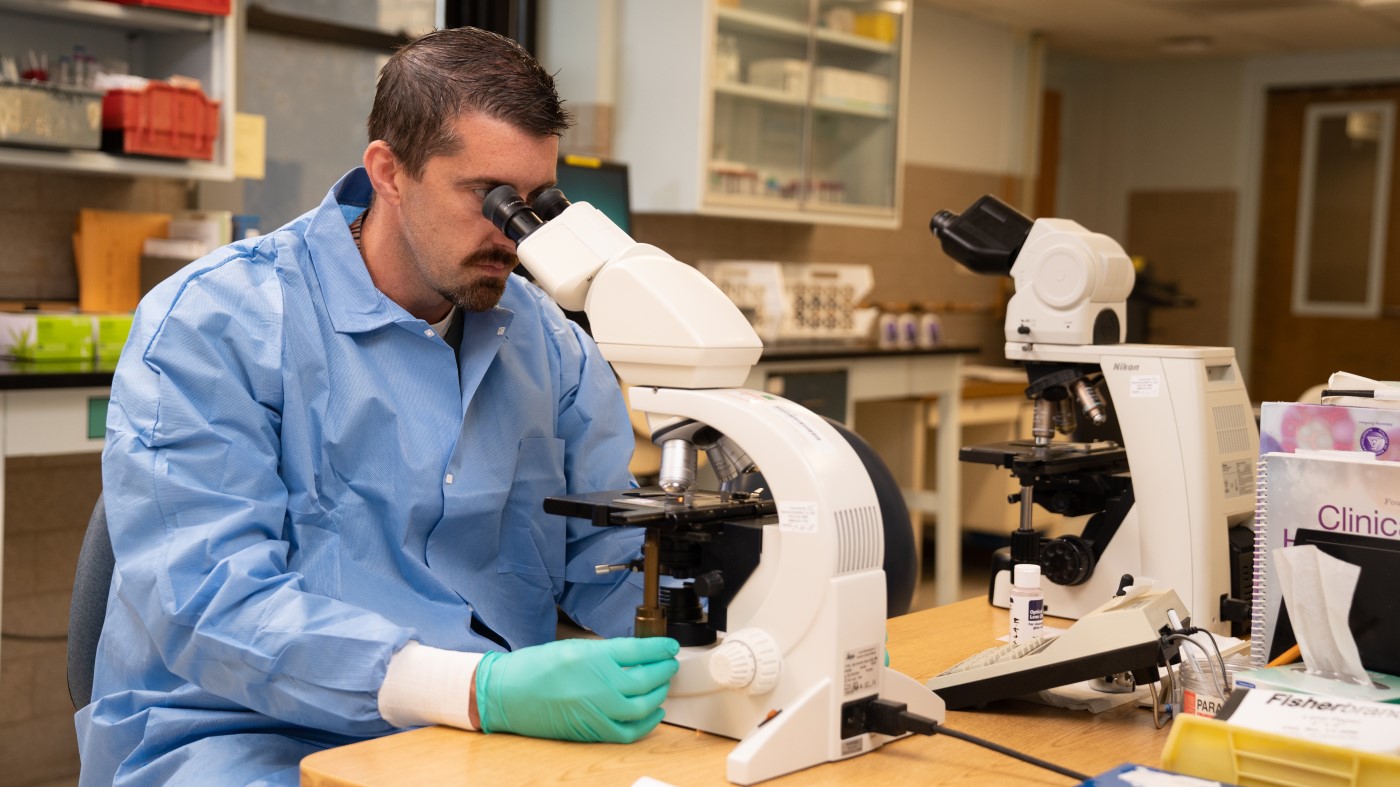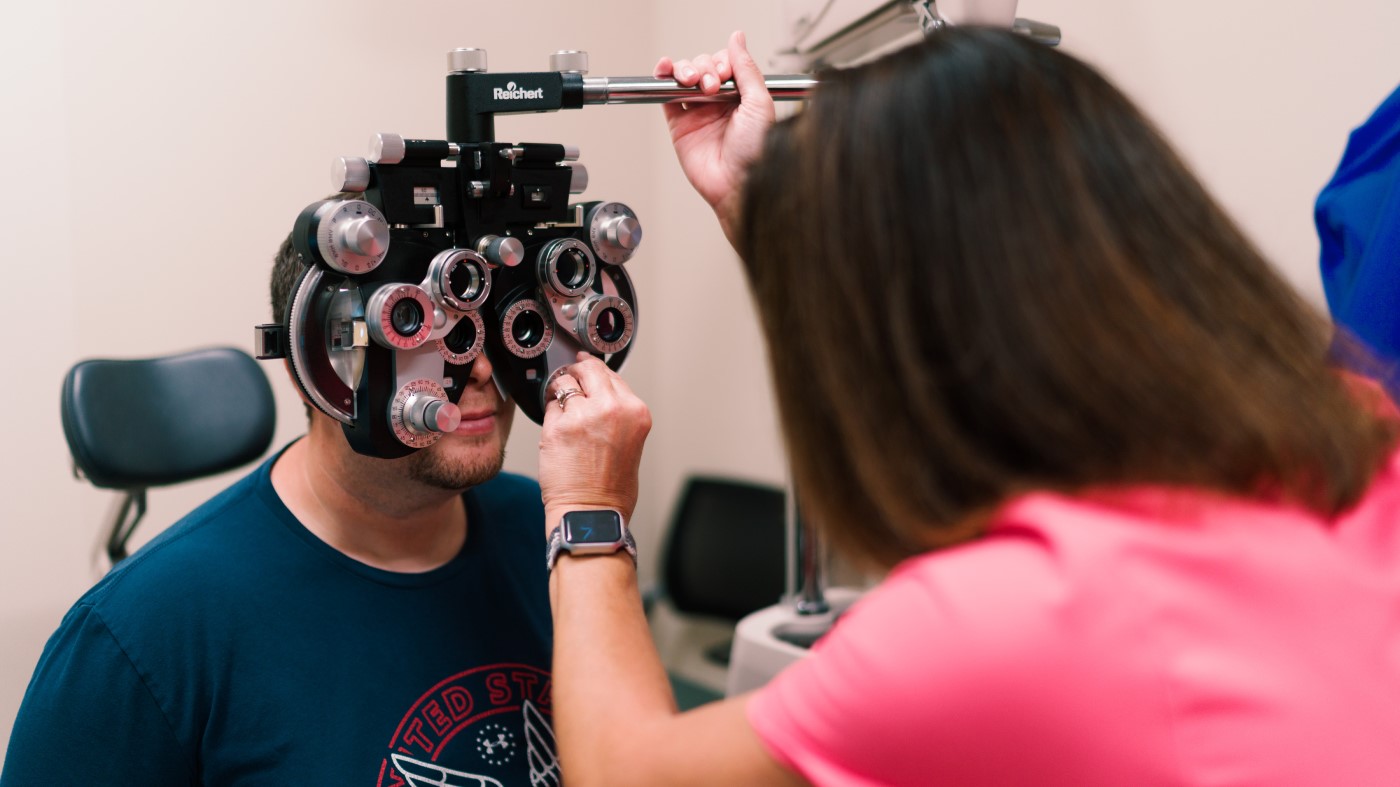When it comes to VA’s mission of caring for Veterans, the clinical work we do is only part of the fight. Behind the scenes, our Office of Research and Development (ORD) is constantly advancing the field of health care with research and technology that improves Veterans’ lives.
Their work is divided into four pillars that address the different phases of care. These phases go from research into the causes of disease all the way through to using new technologies and treatments.
Biomedical Laboratory Research and Development
Biomedical laboratory R&D work begins before a Veteran ever sets foot in one of our facilities.
Rather than address individual patient treatments, this service supports and conducts research to determine how Veterans are affected by conditions beyond their symptoms. In this service, you’ll explore molecular, genomic and physiological influences on diseases, such as inherited conditions or how collective exposures may have caused issues.
This service also works hard to attract extraordinary talent and people committed to advancing science and Veterans care. You’ll participate in efforts and investigations that aim to create broader understanding of the issues Veterans face and how that information can be translated to individual care.
Clinical Science Research and Development
Clinical science R&D applies theory to the direct care of Veterans. Help move ideas from scientific discovery to clinical application.
You’ll gather data from patients, study it through the scope of the treatments we currently provide and help improve the broader system of treatment. Participating in clinical studies, studying intervention programs and even exploring the effectiveness of a treatment all fall under the umbrella of this service.
Health Services Research and Development
Health services R&D includes all aspects of VA health care, with a focus on patient care, cost and quality. The main mission of this service is to identify, assess and quickly implement proven strategies that improve the quality and safety of Veterans care.
You can conduct collaborative research, exploring topics that remain critical for both Veterans and VA as a whole. Some of the studies conducted by this service have included ongoing efforts to address:
- Suicide prevention
- Opioid management
- Mental health
- Complex chronic diseases
- Health informatics
- Implementation science
Rehabilitation Research and Development
Rehabilitation R&D is focused on technology that gives Veterans back their independence. Play a part in improving the quality of life of Veterans with disabilities and test the outcomes of the research we do.
Develop rehabilitation research projects and evaluate the data you gather. From there, you can apply that information to developing technology that works for Veterans. Those results can then be expanded across VA, and you’ll know you changed lives in a real way.
Work at VA
Whether it’s in biomedicine, clinical sciences, health services or rehabilitation, VA researchers can change medical care not just for Veterans, but for patients around the world.
- LEARN about the mission of the Office of Research and Development.
- READ about ORD’s career development program for researchers.
- EXPLORE the possibilities of a VA career.
- FIND your next opportunity at VA.
Topics in this story
More Stories
We offer some quick and easy steps to show you how to format a cover letter, and what information to include.
The eye care provided by ophthalmologists can make all the difference to our Veteran patients.
Whether it’s access to the great outdoors or a calmer pace in your everyday life, you can find it in rural VA communities around the country.






Is va doing any marijuana research?
You need only to remember one thing, the VA acts as an insurance adjustment agency and tailors its findings to meet that end as a means to save dollars at the expense of veterans. From expendable asset to disposable liability. You can not be a VA advocate and a veteran advocate the same time. VA doctors are VA doctors, VA doctors are not veteran doctors, a VA doctors best interest is to protect the VA not the veteran, we are the fodder, the staple that feeds those who flourish off the blood, sweat, tears and fears of lost patriots, the VA is not your friend, the VA is your arbiter.
That’s a bunch of crap. I ‘ve been breeding multiple macrobacterial parasites since medical evacuation in 1978. Died twice already.
They poisoned me my friends my family. All dead.
I try and avoid. I have nuerological damage. The ve requires insane amounts if paper work for every issue.
I look at it and know. I can’t download n print or call. My injury keeps me from it.
Camp lejeune water poison victim.
We were on our way to afgan when Carter xanceled
It.
A good man
Still the excuse the VA’s hands are tied when it comes to Progressive Care! No movement on Cannabis or any-other thing that Veterans know that helps, be it pain and or ptsd…. The VA is standing by watching the 22 PD, March to our Deaths! The VA can Advocate thru congress for unconventional therapies for Suffering Vets!! As for conventional therapy, I would like to know why I had to get the Tucson VA patient advocate involved, while waiting 4 hours for a Cane!?
Services include “ongoing efforts” doesn’t Instill confidence. Reading what you tell me you’ve done with funding. I prefer details. I was however, ” extremely impressed” by a recent visit to the Flagstaff VA. It’s ever so much better. My health care providers immediately resolved my concerns and addressed any and all concerns I had. Most pleased!
Sadly, since marijuana is still a schedule 1 drug at the federal level, they can’t research the many benefits this drug would provide. Sad really.
No surprise they do R&D. Neat I guess to know the areas as they define them. But beyond a brief definition there’s nothing here in this article.
Kudos to the advancement of helping us with opioids and disease personally along with rehab to avoid suicidal thoughts ijs.